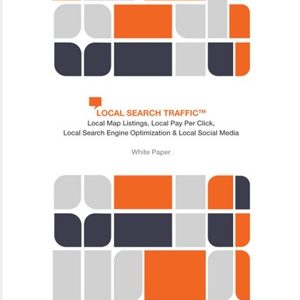
The Power and Importance of Online Reviews in Today’s Digital Age
Online reviews have become an integral part of doing business in the modern digital era. Every savvy marketer understands that online reputation is paramount.
Whether you run a small family restaurant, a tech company, or a chain of coffee shops, your customers will likely search for you online first. One of their primary actions will be to look for online reviews about your business.
Positive reviews build a trusted brand, making consumers more likely to purchase from you. However, how you respond to negative reviews is equally crucial and tells much about your business.
Why Online Reviews Matter
Platforms like Yelp, Google Business Profile, and TripAdvisor offer consumers a valuable tool to learn about businesses before engaging with them. While beneficial for consumers, businesses face the challenge of potentially damaging reviews overshadowing positive feedback.
Online reviews are a staple of digital commerce, particularly significant for millennials who use them to make informed purchasing decisions.
Here are some compelling statistics about online reviews:
1. Influence of Positive & Negative Reviews
A 2021 report by PowerReviews reveals that nearly all consumers (99.9%) read reviews when shopping online. Interestingly, 96% specifically look for negative reviews, a significant increase from 85% in 2018. Consumers seek out negative reviews to understand a company’s weaknesses, ensuring more credibility when a mix of reviews is present.
2. Trust in Reviews vs. Personal Recommendations
According to BrightLocal, 49% of consumers trust online reviews as much as personal recommendations from friends or family. This trust can be as significant as that placed in direct personal feedback.
However, certain contexts may raise concerns about review authenticity, such as overly positive or negative reviews, reviews from anonymous users, and those with sparse text content.
3. Volume of Reviews Equals Better Reputation
Consumers feel that the number of reviews a business has is crucial. BrightLocal found that 60% of consumers consider the volume of reviews important when deciding on a local business.
4. Low Trust in Traditional Advertising
Traditional advertising faces skepticism, especially from millennials, with 84% expressing distrust according to Performance Marketing World. This highlights the growing importance of genuine online reviews over traditional ads.
5. Mobile Shoppers & In-Store Reviews
Data from OuterBox indicates that 80% of shoppers use smartphones to look up reviews while in-store. This shows the intersection of online and offline shopping experiences and the impact of online reviews on in-store sales.
6. Impact of Reviews on Social Media
Reviews on social media, particularly Twitter, significantly increase social commerce. Yotpo data shows that social media reviews can dramatically boost conversion rates across platforms like LinkedIn, Twitter, and Facebook.
7. Importance of Reviews for Jobseekers
Employees and job seekers also consider reviews, with 86% researching company reviews and ratings before applying, as Glassdoor research reveals. This underscores the importance of maintaining a positive employer brand.
8. Minimum Acceptable Rating
A business needs at least a 3.3-star rating to be considered by consumers. Companies with ratings below this threshold risk losing potential customers.
9. Sustainability in Travel Reviews
The Expedia Travel Recovery Trend Report highlights that sustainability themes, like renewable energy and recycling, are prevalent in travel reviews. Younger generations, particularly millennials and Gen-Z, are more inclined to choose environmentally friendly options.
10. Trust in Online Reviews by Younger Demographics
Research shows that 91% of 18-34-year-olds trust online reviews as much as personal recommendations, indicating the high importance they place on online feedback.
11. Effective Email Subject Lines for Gathering Reviews
Yotpo’s analysis of 3.5 million review request emails provides insights on enhancing subject lines to secure more reviews. Key tips include using store names, offering incentives, asking questions, and avoiding all-caps words.
12. ROI from Reputation Management Software
A Podium report indicates that 94% of local businesses employing reputation management tools see a return on investment. Managing online reputation is crucial for financial success.
13. Desired Number of Product Reviews
Consumers prefer seeing over 100 reviews for products. High review volumes significantly increase the likelihood of purchase.
14. Unsolicited Hotel Reviews
BrightLocal found that 78% of travelers do not post unsolicited hotel reviews. Therefore, businesses should encourage customers to leave feedback, whether through emails, in-person requests, receipts, or SMS.
15. Suspicion of Fake Reviews
While users rely on online reviews, they are also wary of fake ones. A significant percentage of users are suspicious of reviews, especially on platforms like Facebook.
16. Use of Rating Filters
A large majority of consumers (7 in 10) use rating filters when searching for businesses. Filters help them find businesses that meet their standards, ensuring efficiency in their search.
17. Quick Response to Negative Reviews
Consumers expect a response to negative reviews within seven days, with one-third expecting a reply within three days. Timely responses are critical in maintaining a positive reputation.
18. Impact of Review Responses
How a business responds to a review can significantly alter customer perceptions. Demonstrating empathy and addressing concerns can turn dissatisfied customers into loyal ones.
Conclusion: Embracing the Influence of Online Reviews
The evidence is clear: online reviews are essential and will remain crucial in shaping consumer trust and creating social proof. Managing your online reputation is not just about addressing negative reviews but actively engaging with all customer feedback. Here’s how you can start:
- Educate customers on the importance of reviews and how they help improve your business.
- Take control of your brand on review platforms, responding to feedback promptly.
- Ensure your Google Business Profile is accurate and updated.
- Encourage and request reviews from your customers.
Using these strategies can help you create a trusted brand and foster positive interactions with your customers.



